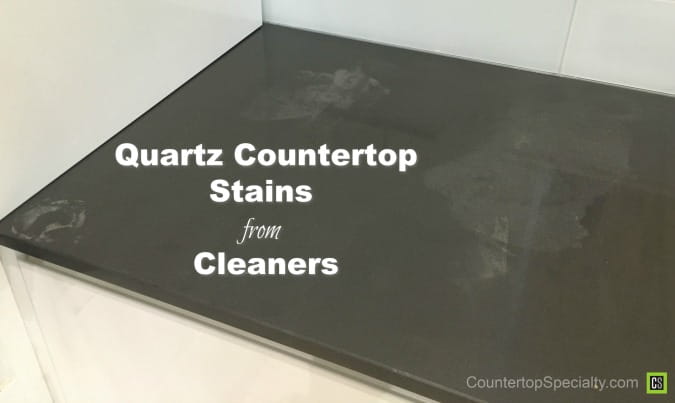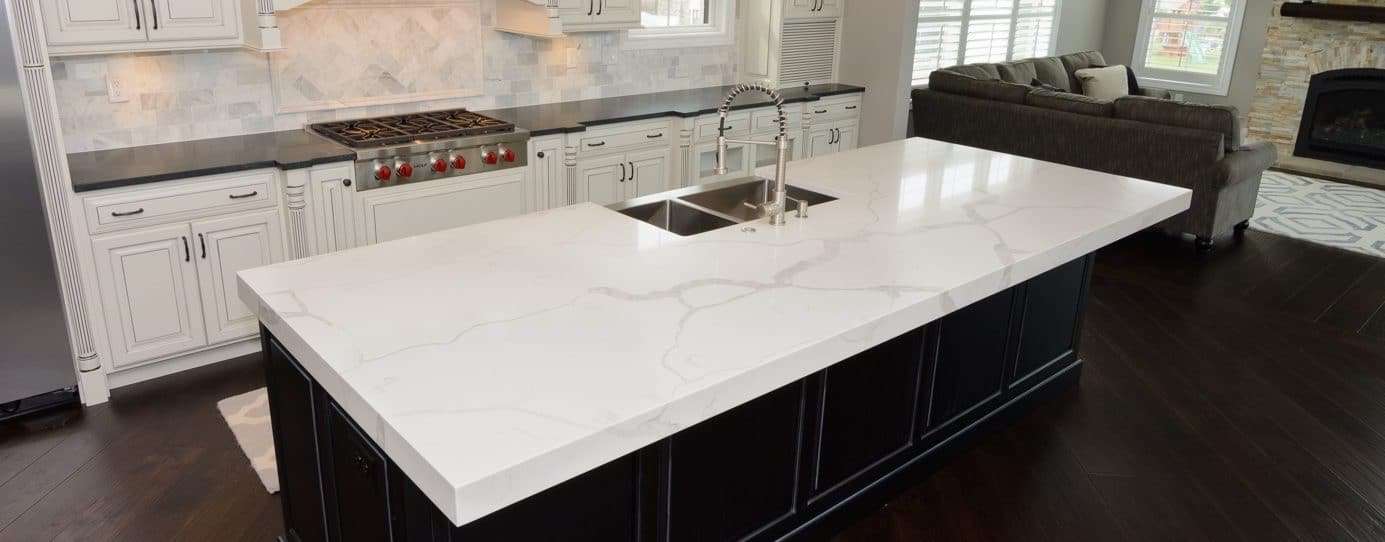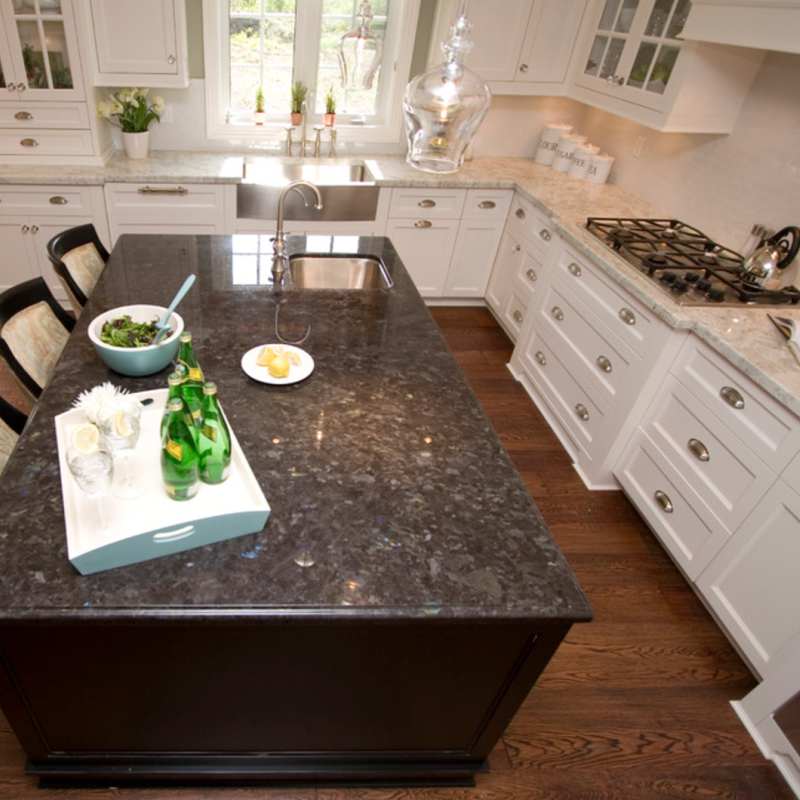A Guide to Cleaning Black Quartz Countertops
Black quartz countertops exude sophistication and elegance, making them a popular choice for modern kitchens and bathrooms. However, maintaining their pristine appearance requires proper cleaning and care. This comprehensive guide offers step-by-step instructions, effective cleaning solutions, preventative measures, and maintenance tips for keeping your black quartz countertops looking sleek and spotless.
Daily Cleaning Routine for Black Quartz Countertops
Establishing a daily cleaning routine is essential for preserving the beauty and cleanliness of black quartz countertops. Start by wiping down the countertops with a soft, damp cloth or sponge to remove any surface debris, spills, or residue from cooking and food preparation. Use a mild dish soap or pH-neutral cleaner diluted in warm water to gently scrub the surface, paying attention to areas prone to spills and stains.
Avoid using abrasive or acidic cleaners, as they can dull the finish and cause etching or damage to the quartz surface over time. Instead, opt for gentle, non-abrasive cleaners specifically formulated for quartz countertops. Rinse the countertops thoroughly with clean water and dry them with a soft, microfiber cloth to prevent water spots and streaks.
For stubborn stains or dried-on residue, apply a paste made of baking soda and water to the affected area, then gently scrub with a soft-bristled brush or sponge. Allow the paste to sit for a few minutes before rinsing and drying the countertops as usual. Avoid using harsh scrubbing pads or abrasive tools that can scratch the quartz surface.

Removing Tough Stains and Spills from Black Quartz Countertops
Despite regular cleaning, black quartz countertops may occasionally encounter tough stains or spills that require extra attention. For oily or greasy stains, such as cooking oil or makeup, apply a small amount of dish soap or a mild household cleaner directly to the stain and gently scrub with a soft cloth or sponge. Rinse thoroughly with clean water and dry the area to prevent residue buildup.
For acidic stains like coffee, wine, or fruit juice, create a paste using a mixture of baking soda and water, then apply it to the stained area and gently scrub with a soft-bristled brush or sponge. Allow the paste to sit for a few minutes before rinsing with water and drying the countertops thoroughly. Avoid using bleach or abrasive cleaners on quartz countertops, as they can cause discoloration or damage to the surface.
For stubborn or set-in stains, consider using a commercial quartz cleaner or stain remover specifically formulated for black quartz countertops. Follow the manufacturer’s instructions carefully and test the product on a small, inconspicuous area first to ensure compatibility and effectiveness. Always rinse the countertops thoroughly after using any cleaning product to remove residue and prevent buildup.

Preventative Measures to Maintain Black Quartz Countertops
In addition to regular cleaning, implementing preventative measures can help maintain the appearance and durability of black quartz countertops. Use coasters or trivets beneath hot pots, pans, and appliances to protect the quartz surface from heat damage and discoloration. Avoid placing sharp or abrasive objects directly onto the countertops, as they can scratch or chip the surface.
Practice caution when handling acidic or staining substances such as citrus fruits, vinegar, or household cleaners, as prolonged exposure can cause etching or discoloration of the quartz surface. Wipe up spills and splatters immediately with a soft cloth or sponge to prevent staining and damage. Regularly inspect the countertops for signs of wear, damage, or deterioration, and address any issues promptly to prevent further damage.
Consider sealing your black quartz countertops periodically to enhance stain resistance and protect the surface against moisture and spills. Consult with the manufacturer or a professional stone fabricator for recommendations on suitable sealants and application techniques. Follow the manufacturer’s instructions carefully and reapply the sealant as needed to maintain optimal protection and performance.
Long-Term Maintenance Tips for Black Quartz Countertops
To ensure the long-term beauty and durability of black quartz countertops, it’s important to incorporate ongoing maintenance into your cleaning routine. Avoid using harsh or abrasive cleaners, acidic substances, or bleach-based products, as they can damage the quartz surface and degrade its appearance over time. Instead, stick to gentle, non-abrasive cleaners specifically formulated for quartz countertops.
Regularly inspect the countertops for signs of wear, damage, or discoloration, and address any issues promptly to prevent further deterioration. Repair minor scratches or chips using a quartz repair kit or filler specifically designed for black quartz countertops. Follow the manufacturer’s instructions carefully and test the product on a small, inconspicuous area first to ensure compatibility and desired results.
Periodically deep clean your black quartz countertops using a commercial quartz cleaner or degreaser to remove buildup, residue, and tough stains. Follow the manufacturer’s instructions for dilution ratios, application techniques, and dwell times. Rinse the countertops thoroughly with clean water and dry them with a soft cloth or towel to prevent water spots and streaks.
Consider scheduling professional deep cleaning and maintenance services for your black quartz countertops every few years to remove stubborn stains, refresh the surface, and ensure optimal performance and longevity. Consult with a reputable stone restoration specialist or countertop professional for personalized recommendations and services tailored to your specific needs and preferences.

Common Mistakes to Avoid:
Using Harsh or Abrasive Cleaners: Avoid using harsh or abrasive cleaners on black quartz countertops, as they can damage the surface and degrade its appearance over time.
Neglecting to Seal the Countertops: Failure to seal black quartz countertops periodically can leave them vulnerable to stains, moisture damage, and deterioration.
Ignoring Stains or Spills: Neglecting to clean up spills and stains promptly can result in permanent damage or discoloration of the quartz surface.
Using Improper Cleaning Tools: Avoid using abrasive scrubbing pads or tools on black quartz countertops, as they can scratch or dull the surface.
Skipping Regular Maintenance: Neglecting regular cleaning and maintenance can lead to buildup, staining, and deterioration of black quartz countertops over time.

Can I use vinegar to clean black quartz countertops?
It’s best to avoid using vinegar or acidic cleaners on black quartz countertops, as they can cause etching or damage to the surface over time. Instead, opt for mild dish soap or a pH-neutral cleaner diluted in warm water for daily cleaning.
How often should I seal my black quartz countertops?
The frequency of sealing black quartz countertops depends on factors such as usage, exposure to moisture and stains, and the type of sealant used. Generally, it’s recommended to seal the countertops every 1-2 years to maintain optimal protection and performance.
Can I use bleach to remove tough stains from black quartz countertops?
No, bleach should not be used on black quartz countertops, as it can cause discoloration and damage to the surface. Instead, opt for a commercial quartz cleaner or stain remover specifically formulated for black quartz countertops.
Are there any special considerations for cleaning matte-finish black quartz countertops?
Matte-finish black quartz countertops may require extra care and attention during cleaning to avoid streaking or dulling the finish. Use a soft, microfiber cloth or sponge and a mild dish soap or pH-neutral cleaner diluted in warm water to gently clean the surface, then dry it thoroughly to prevent water spots and streaks.
Can I use abrasive cleaners or scrubbing pads to remove tough stains from black quartz countertops?
It’s best to avoid using abrasive cleaners or scrubbing pads on black quartz countertops, as they can scratch or damage the surface. Instead, opt for gentler cleaning methods and products specifically formulated for quartz countertops.

The Only How To Clean Quartz Countertops Guide You Will Ever Need

How to Clean a Quartz Countertop: 11 Steps (with Pictures)

The Dark Side: Black Quartz and Black Granite Countertops Compared

The Dark Side: Black Quartz and Black Granite Countertops Compared
.jpg)
Related articles:
- Beveled Edge Quartz Countertop
- Quartz Countertop Choices
- Quartz Countertop Types
- Grey Brown Quartz Countertops
- Quartz Countertops Pattern
- Quartz Countertops DIY
- Kitchen Island Quartz Countertop
- Quartz Countertops In Bathroom
- White Engineered Quartz Countertops
- Artificial Quartz Countertops